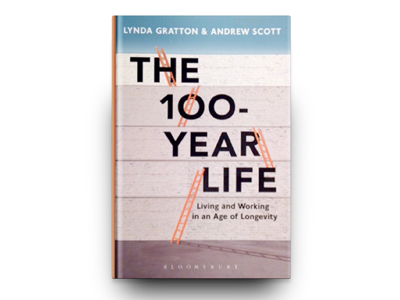
There’s a mental health time bomb ticking away but we’re not noticing it because we’re focusing on our physical well being.
Being stuck inside, lack of human contact, losing our routines, worrying, changing our dietary habits, these are all factors that can compromise our mental and emotional well-being, and while, of course, our priority must be to protect ourselves and others from the Covid-19 virus, our mental health is being compromised all the time we are trying to adapt to these unusual circumstances.
I’ve already noticed a slight shift from compassion to “blame and shame” with regard to people’s behaviours around the virus. People being judgemental about how others conduct themselves, complaining that others are not being sufficiently considerate on pavements and in public spaces. That has to do, in part, with heightened anxiety and the difficulties that arise from changes to our normal life, as well as increasing fear as people we know fall ill. It’s our own fears, being expressed as anger.
People are reacting to the situation in very different ways. Some are positive – seeing opportunities, some are philosophical or stoic, accepting the situation for what it is, some are anxious, and others are experiencing depression. It’s important to be aware that people are reacting in different ways: we’re not expected to see things as others do, and we can’t expect others to see things the way we do. Our specific circumstances and concerns mean we may have a different attitude to the next person, and neither is more or less valid – just different.
At first Coronavirus was an abstract thing that happened far away. Then it came to our country, our town or village, our community and now it’s reached our close friends and family. I don’t suppose there’s anyone in the UK now who does not know of someone who is, or has been, seriously affected by Covid-19. It’s scary, and we need to notice our fear while also trying to to maintain calm, showing care towards ourselves and others.
With that in mind, here are some ideas to help with self-care.
1 Focus on what you can influence, not what you can’t.
It was the writer Stephen Covey who introduced me to this idea in his excellent 7 Habits of highly effective people. I’m not one for coaching gurus, but Stephen Covey is the exception as far as I’m concerned. Covey invites us to recognise that there are many things that worry and concern us, and we tend to pay more attention to the things that are out of our control than the things that we can influence. We are all fearful about the spread of Covid-19 but there’s very little we can do to stop its spread, except to be as vigilant as we can, and behave as responsibly as we can. Other than that it’s out of our control, so there’s little point worrying too much about it. When we see others behaving irresponsibly we can be annoyed, we may even say something, but we’re unlikely to change their behaviour, so why get stressed about it?
We fear the unknown, but doubt is OK. We don’t know what’s happening. Remember that it’s OK not to know. We are looking for explanations – its the human condition. We want answers and need to be in control. the inability to be in possession of clear facts mean people grasp at half-truths, untruths, or anything that allows them to feel as if they know, understand, and are in control. This then leads to people judging others if they don’t behave according to the “truth” that they have adopted, and add this to the anxiety that many feel, and you have a recipe for shaming and blaming others.
More worrying, it leads to conspiracy theories and damaging telephone masts because people are persuaded by ideas that Covid-19 is spread by 5G. It’s an answer. It doesn’t matter that it’s nonsense. When people want answers they’ll grasp at anything that someone presents to them as an answer.
Better to put your energy into making the changes in your life that you are able to make. Stay informed, but don’t stay tuned into the news all day long – the media tells you about the things you can’t influence, and therefore the stuff that reminds you about what you don’t have control over. Overdosing on this stuff will bring you down. Focus on things that you want to do, and make efforts to effect those changes rather than focusing on things that you can’t do anything about.
2 See the opportunities in the situation.
With the additional time available during the week that many people now have, you have a chance to do things, either personally or professionally, that you’ve been meaning to do for a while. I wonder how many books are being written right now? Books that the authors have wanted to write for years perhaps? How many of my musician clients are going to compose new pieces and perhaps record demos at home?
For those people with children, can you see this as an opportunity to spend real quality time with them? Clearly if you have young children at home you’re not going to have much time to get into new personal projects, on the other hand, this time together might be something that your children will value and appreciate. How many of us feel guilty that we are at work until late and don’t see enough of our kids? Well here’s the opportunity to be with them as much as you always felt you needed to.
There are also things you can do with or without the children, that will have other benefits. Later on I’ll talk about eating well. The current situation presents us with opportunities to develop our culinary skills, or if we’re lucky enough to have one, working in the garden, or perhaps decluttering. I’m certainly looking at my possessions in a new way. The world is a very different place now and is going to be different from now on. I’m not looking at accumulating things. I’m looking at shedding myself of things.
The situation we find ourself in means that for many of us, we have time to do things we didn’t have time to do before. Time is a gift. Don’t think about how this is restricting you, think about the possibilities.
3 Try to maintain your normal routines.
Get up when you usually get up. Get dressed rather than staying in your PJs all day, eat at your normal times. Life hasn’t changed that much. Don’t let it feel as if it has. Whatever you used to do that you can’t now do in the same way, try to find a different way of doing it rather than deciding that you can’t do that thing any more.
Work and social life are the obvious examples. We’re all trying to find new ways of working. We’re also discovering new ways to communicate with friends and family. That’s not changing your routines, that’s changing the way you follow your routines.
4 Exercise
Leaving the house to exercise is one clearly permitted. so every day you can go our for a run, walk or bike ride, perhaps.
Exercise has such an incredible impact on our mental well-being that everyone should find time, no matter what their situation, to do it, preferably daily, but otherwise whenever you can. It doesn’t need to be hard exercise, just going for a brisk walk that gets the heart rate slightly raised is good for the mind as well as the body.
If you’re confined to you home, or even one room, stretching, yoga or pilates will be ideal. There are many teacher now offering online classes. Exercise could be the most important thing for keeping you in balance.
If you never thought you could get into running, you have a great opportunity to take on the couch to 5K challenge. You have the time, and I promise you that if you see it through, you’ll be running for 30 minutes three times a week, within 9 weeks. There are plenty of downloadable programmes but the one I used was from the BBC website.
I’m a keen cyclist. When I took it up as an adult I had no idea of the well-being benefits cycling offered beyond general fitness, but there’s no doubt about it. Everyone’s talking about mindfulness these days. I didn’t realise I have been practicing mindfulness on a bike until I watched a short film on youtube called “The Art of Mindful cycling with Dr Ben Irvine”. It’s well worth looking at. Cycling is high value exercise with low impact on your body. Also, it’s a lot easier to keep a safe distance between you and others when on a bike. There’s no narrow paths to share as walkers and runner must.
Another form of exercise that is both enjoyable and easy to do at home is dancing, so put on a bouncy piece of music and have a bop! Get that adrenalin flowing through your body. You could even arrange a disco with friends over Zoom or Skype.
Or alternatively, an online gym session with a friend while you are both on zoom together.
5 Eat well
Panic buying seems to have eased off, but still we can’t always buy the food we normally would. So another opportunity to try something new presents itself. It’s really important to eat a balanced diet for physical and mental well-being. Take the opportunity to cook new dishes, using foods you might not have tried before. The internet is an amazing source of recipes. It’s a chance to eat well, to learn something new and to do something with the children, perhaps.
6 Socialise as much as you can.
Contact is crucial. Isolation is incredibly detrimental to well-being so pick up the phone and talk to your friends and family now that you can’t visit, especially those living alone.
Create WhatsApp groups with different communities and participate in those online conversations.
Video conferencing allows you to see and speak to people and some of these services allow group chats.
Check in on your neighbours if you are able to go out, talking to them from a safe distance. I’m optimistic that we can come out of this experience much closer to those around us, and much more caring towards our friends, family and neighbours.
It’s important to feel connected to others. People want to feel connected. Say hello to strangers as you pass them in the street – acknowledge the humanity of others.
7 Spiritual practice
This isn’t about getting religious. Those that have faith had it before Covid-19 entered our lives, those that don’t aren’t gong to suddenly get faith now because of it. I’m talking about meditation, mindfulness and becoming more tuned into what’s really important by spending time in contemplation. It’s amazing how quiet, private thought puts our fears and worries into perspective.
Some meditate, some look at nature, even if that means looking out of the window at a tree. The universe is a big place, and we are very, very very small things in the universe. That’s awesome. Tuning into your sense of awe brings inner peace. Being in the moment means we stop, for a while, worrying about the future.
8 Sleep well
Good sleep is important for physical and mental health. Just because you haven’t got anything specific to get up for, go to bed at a sensible time and wake up after a proper night’s sleep. This might not be easy but it is habit forming. At first you might find it difficult to get to sleep, and you might wake up in the night several times, but don’t stop forming that habit. Go to bed when you feel tired rather than trying to go to bed early and tossing and turning. Then, when you’ve found that natural bed time, you will soon be waking up at the same time every day. Sleeping-in isn’t good, and lying on your back for too long isn’t great for your lungs, which is something we need to be aware now just now.
All of these practices are important for physical and mental well-being. They directly influence our energy levels, and they contribute to our overall happiness. Most of us have never experienced a situation as challenging as now. It has never been more important to pay attention to our self-care. If you take on some of these ideas now, you may even come out of the experience feeling healthier than you have for many years.
Finally, remember, this will all be over relatively soon, and there’s going to be a lot of crying, and a lot of love to give and receive, so try to stay mentally strong and healthy so you can be there for those who will need you.
Stay safe, and stay well.



 Posted by Nick Gendler
Posted by Nick Gendler 






